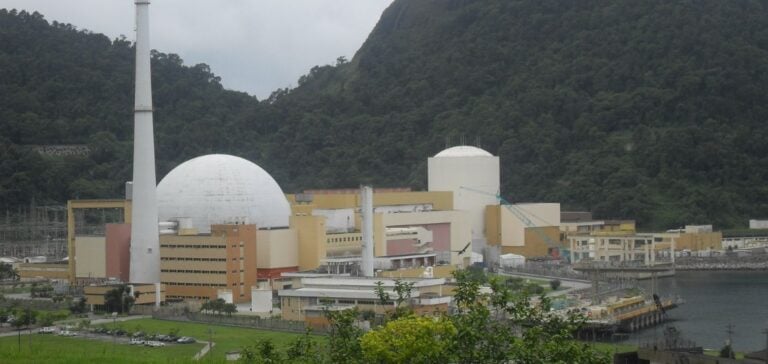Angra 1, a nuclear power plant in Brazil, is an essential pillar of the country’s energy production. With a net capacity of 609 MWe, this pressurized water power plant began commercial operation in 1985. Eletronuclear is currently looking to extend the life of the plant from 40 to 60 years. A complex process requiring years of preparation and heavy investment
Extension process and regulatory requirements
The application to extend the plant’s life has been submitted to Brazil’s National Nuclear Energy Commission (CNEN) in 2019. During 2023, Eletronuclear submitted 16 reports detailing various safety factors defined by the International Atomic Energy Agency (IAEA). In response to 166 follow-up questions from the CNEN, the company also carried out the third and final periodic safety reassessment. A document produced every ten years that assesses safety performance, emergency planning, equipment qualification and management systems.
Modernization and safety measures
To ensure the plant’s safe operation for a further 20 years, Eletronuclear has undertaken several significant upgrades. This includes replacing the steam generators, changing the reactor vessel cover and replacing the main transformers. Ageing and obsolescence management systems have also been implemented. These efforts represent an estimated investment of around R$3 billion (US$585 million) between 2024 and 2028. Short-term financing provided by main shareholders ENBPar and Eletrobras. Negotiations are also underway with the U.S. Export-Import Bank for the complete modernization program.
The SALTO mission and international alignment
Eletronuclear is also using the U.S. Nuclear Regulatory Commission’s (NRC) license renewal application process, and is preparing for a fourth IAEA visit for a SALTO (Safety Aspects of Long-Term Operation) mission. Previous visits took place in 2013, 2018 and 2022. The purpose of these inspections is to assess the plant’s ability to continue operating safely beyond its original design life.
Future projects and challenges
In parallel with the extension of Angra 1, Eletronuclear also manages Angra 2, a 1275 MWe power plant (net capacity), in operation since 2001. Together, Angra 1 and 2 generate around 3% of Brazil’s electricity. However, the Angra 3 project, a 1405 MWe pressurized water reactor, has had several interruptions since construction began in 1984. Mainly due to corruption investigations and negotiations over socio-environmental compensation.
Long-term outlook
Despite these challenges, Brazil remains determined to increase its nuclear capacity. The National Energy Plan to 2050 calls for the addition of 10 GW of nuclear capacity over the next 30 years. This expansion aims to strengthen the country’s energy security and diversify its energy mix to meet the growing needs of its population.
The Angra 1 life extension process illustrates the challenges and efforts required to maintain and modernize nuclear infrastructures. With substantial investment and international cooperation, Brazil is seeking to guarantee stable, safe energy production while preparing the future of its nuclear sector.






















